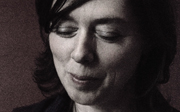Perhaps the most shocking thing about the German election was that we weren’t shocked.
The far-right Alternative für Deutschland, founded in 2013, three years before French president Emmanuel Macron’s En Marche, took an astonishing 13% of the popular vote and has over 90 seats in the Bundestag. But we’re not shocked. The markets, in particular, were supremely sanguine. Investors and traders preferred to emphasise Angela Merkel’s victory.
“With Angela Merkel’s fourth term, Germany’s main stock market, the DAX moves positive on the day, and I expect, should the positive momentum continue, we will challenge for the all-time high of 12,951 made in June this year,” wrote Jordan Hiscott, chief trader at Ayondo Markets, the day after the election. He is probably right. The DAX probably will carry on soaring and reach new highs. At the time of writing it is at 12,698 – within spitting distance of last June.
We are calm because it’s hard to take in the results. Life goes on. We stumble around making coffee as the radio delivers the impossible news that Donald Trump is US president. We burn our toast as we learn that the UK has voted to reject an alliance that brought 70 years of peace to our continent. We get used to such shocks and barely react when a far-right party enters the German parliament.
And we are calm because everything feels kind of OK.
The global macroeconomic environment – to quote Pimco’s Joachim Fels, global economic adviser, and Andrew Balls, CIO global fixed income – is “as good as it gets”. In Germany, economically speaking, things are pretty good.
“The unemployment rate has halved since Merkel first took office in November 2005 and GDP growth is above 2%,” says Wolfgang Bauer, bond fund manager at M&G Investments.
But the calm is a little eerie. “It’s easy to get lulled into complacency by synchronized global growth, easy financial conditions and super-low economic and financial market volatility,” say Fels and Balls, noting that the last time this combination prevailed was 2006 – and that didn’t end well.
This time there is the added spice of rising populism. It has not been halted, as many hoped it would be after Macron’s victory. It has been reinvigorated. For if populists can triumph in modern-day Germany, they can triumph anywhere.
“The success of the AfD at the ballot box might challenge the prevailing narrative, particularly since the Dutch and French elections, that anti-EU populism was on the decline,” says Bauer. “This could have implications for markets, which arguably have become somewhat complacent in this regard.”
We live in a wonky world where gaps between people are widening. Some are screaming their frustration at the ballot box and on the streets, and no one seems to be listening.
Perhaps our mistake is to expect politicians to do anything about this. There is something magnificent about the markets’ ability to shake off electoral catastrophes. Businesses continue to innovate and people continue to trade, looking for ways to pull down barriers, while certain politicians scramble to erect new ones. As we wait calmly for the next shock, we must look to ourselves. Keep trading. Keep innovating. Keep learning new languages and crossing new borders.
©2017 funds europe





